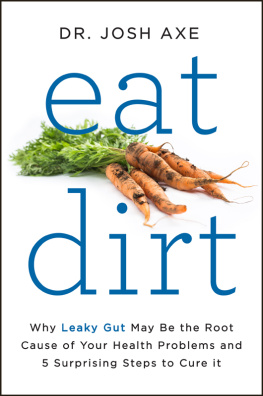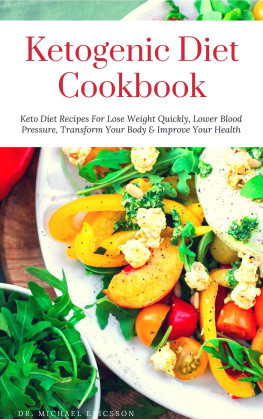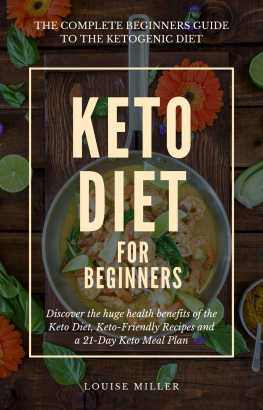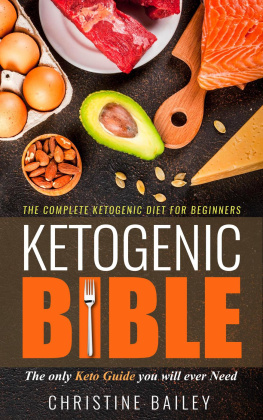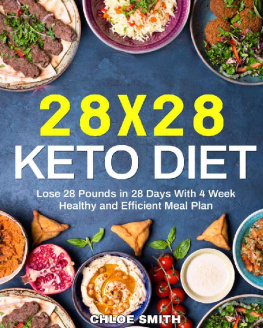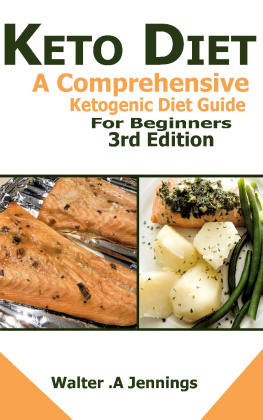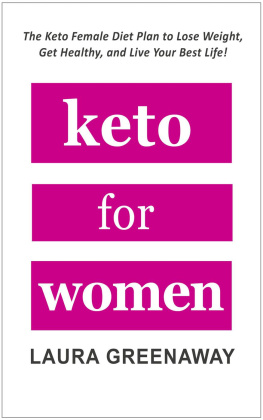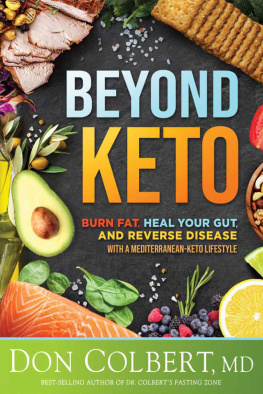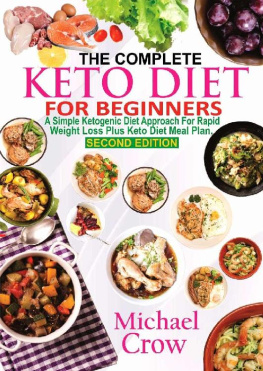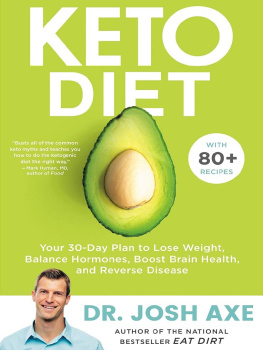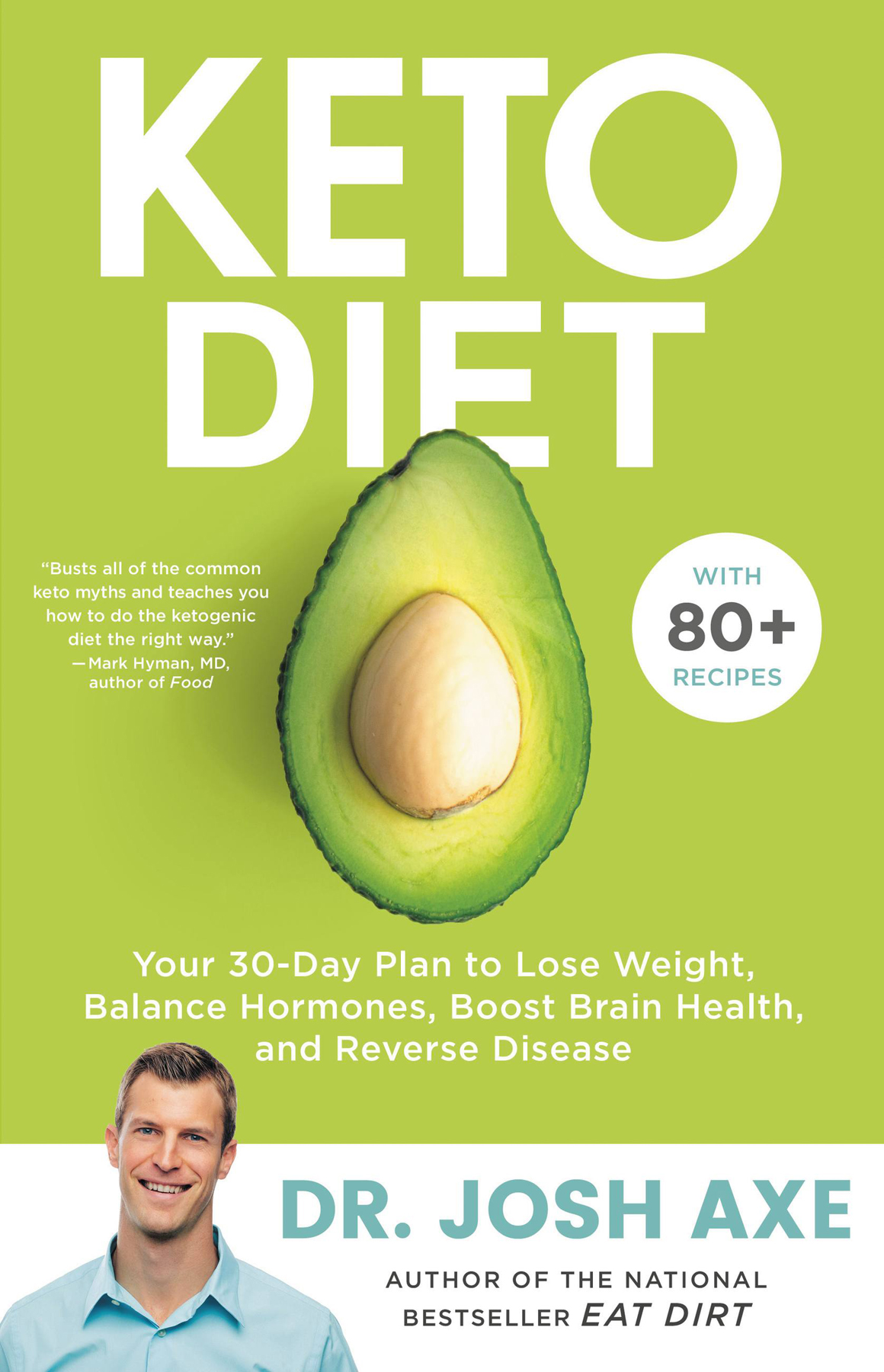Foolish the doctor who despises the knowledge acquired by the ancients.
Hippocrates
T here must be a better way. I first had that thought as a thirteen-year-old kid in Troy, Ohio, when I discovered clumps of my moms sandy-blond hair on our bathroom floora side effect of the chemotherapy that was poisoning her body in order to treat a cluster of cancer cells in her left breast and lymph nodes. The same unsettling thought struck again when my vibrant, athletic mom (a swim instructor and my school gym teacher) emerged from treatment seemingly cured of cancer but robbed of her spark, her energy, and her health.
There must be a better way.
At that age, I knew absolutely nothing about nutrition, but one public service message found its way into my adolescent brain: Soda is unhealthy. So I decided I would no longer drink it. This was the first time it occurred to me that food and diet might somehow be part of a better way. If soda was bad for you, might other foods be, tooand might some be good for you as well?
For the next decade, my mom struggled with a range of health problems that left her feeling sick and tired all the time. Depression. Hypothyroidism. Constipation. Chronic fatigue syndrome. All this from a woman who, prior to treatment, could easily work a full-time job, care for her family, and then go for a workout or run and still feel energized. As I watched her health decline, an idea began to take hold, and over the years it continued to grow. I would become a doctor. Id learn for myself why my mom had to sacrifice her health to treat her illness. And Id try to find a better way.
By the time I was in my twenties, that dream was becoming a reality. I was attending chiropractic college in Florida, where I learned the foundations of nutrition. I also began training as a doctor of functional medicine and learning about ancient remedies. The wisdom of traditional Chinese medicine and Ayurvedic medicine made sense to me. These millennia-old practices worked with your body rather than against it. Instead of looking at an illness in isolation, the treatments took the whole person into consideration and aimed to heal the root cause of disease. They saw the forest and the trees, restoring overall health while eradicating illness. And they used food as medicine to bolster the body and create the optimal conditions for healing.
Nutrition was a key piece of the better way puzzle that was slowly coming together in my mind. As I read everything I could get my hands on about food and healing, I came across the ketogenic diet. I was blown away by the research. Heres a diet that actually transforms the way the body uses macronutrients, shifting your main fuel source from carbohydrates to fat. No other approach, short of fasting, can accomplish that. As a result, it can be a game changer for people who have struggled for years to lose weight, because it literally turns your body into a fat-burning machine. At the same time, the overall health implications are profound. It can reduce inflammation, balance vital hormones like insulin, and boost your brain health. During my research, I learned that the diet had already been used for decades to treat epilepsy and diabetesand was being explored for other diseases as well, including cancer.
I was in that mode of research and discovery when I received a tearful call from my mom. My oncologist told me they found a tumor on my lungs, she said, voice quavering. My stomach dropped. No, I thought, not again. My mom was my inspirationand shed already been through so much. I told her I loved her and would be there soon. The next day, I was on a plane to Ohio.
Back in my family home, my mom explained that her doctors had recommended surgery and radiation. I told her I believed there was a better wayone that would strengthen her bodys innate healing mechanisms, support her overall health, and offer a sane, sustainable, scientifically sound approach to lifelong wellness.
Then I dove headlong into my research. I spent hundreds of hours reading about cancer and nutrition and herbs and antioxidants, and I reached out to some of the worlds leading integrative medicine physicians for advice on nutrition and lifestyle changes that could support immunity and healing. Based on what I learned, we completely revamped my moms diet.
We got rid of all the processed foods in her cupboards and filled her fridge with veggies, herbs, healthy protein, wholesome fat, and bone broth. I showed her how to make delicious vegetable juices with celery, spinach, cilantro, ginger, lemon, and beets. We bought wild salmon and cod liver oil, both of which are packed with inflammation-lowering omega-3 fatty acids. My mom began eating a variety of mushrooms, like shiitake and cordyceps and reishi, known as the mushroom of immortality in traditional Chinese medicine. She used herbs like milk thistle, known to detoxify the body, and turmeric, a potent anti-inflammatory that may play a role in reversing a variety of diseases, including cancer. We all but eliminated processed carbs and added sugar from her diet.
She made other healthy changes, too. She began getting lymphatic massage and chiropractic care; praying and doing positive, healing affirmations; and using essential oils like frankincense, which relieves stress and anxiety, supports immunity, and contains antitumor properties. Shed been diagnosed with cancer, but youd never know it. As the weeks rolled by, she began feeling more energetic than she had in years, her depression lifted, and she lost twenty-two pounds.


